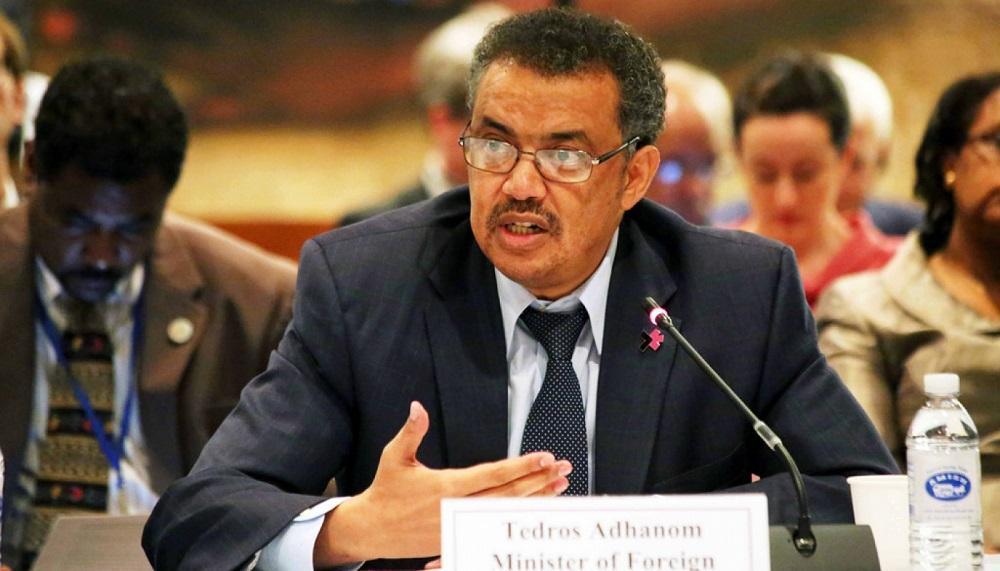The World Health Organisation (WHO) says as the risk of a surge in COVID-19 cases increases, African countries must urgently boost critical care capacity to prevent health facilities from being overwhelmed.
The world body said this in a statement, noting that the call came as vaccine shipments to the continent grind to a near halt.
It stated that “weak observance of preventive measures, increased population movement and interaction, as well as the arrival of winter in southern Africa heightened the risk of COVID-19 resurgence in many countries.”
It added that in the last two weeks, Africa recorded a 20 per cent increase in cases compared with the previous fortnight.

“The pandemic is trending upwards in 14 countries and in the past week alone, eight countries witnessed an abrupt rise of over 30 per cent cases.
“South Africa is reporting a sustained increase in cases, while Uganda saw a 131 per cent week-on-week rise last week, with infection clusters in schools, rising cases among health workers and isolation centres and intensive care units filling up.
“Angola and Namibia are also experiencing a resurgence in cases.
“The increase came as COVID-19 vaccine shipments continue to slow down.
“Burkina Faso this week received just 115 000 doses from the COVAX Facility, while Rwanda and Togo received around 100,000 Pfizer vaccine doses each and nearly 20 African countries have used up more than two-thirds of their doses.”
It explained that the COVAX Facility is in talks with several manufacturers, as well as with countries which have vaccinated their high-risk groups to share doses, noting that “the threat of a third wave in Africa is real and rising.”
Meanwhile, Dr Matshidiso Moeti, the WHO Regional Director for Africa, said the organisation’s priority was clear, stressing that “it is crucial that we swiftly get vaccines into the arms of Africans at high risk of falling seriously ill and dying of COVID-19.
She made the world body’s position clear during a virtual news conference on Thursday, saying that “while many countries outside Africa have now vaccinated their high-priority groups and are able to even consider vaccinating children, African countries are unable to follow up with second doses for high-risk groups.
“I’m urging countries that have reached a significant vaccination coverage to release doses and keep the most vulnerable Africans out of critical care.”
According to her, 48.6 million doses have been received and 31.4 million doses administered in 50 countries in Africa.
She said that around 2 per cent of the population had received at least one dose of the COVID-19 vaccine, while 24 per cent vaccinated globally.
“As the continent struggles with vaccine shortages, the care of critically ill COVID-19 patients is also lagging behind other parts of the world.
“While Africa has 2.9 per cent of cases globally, it accounts for 3.7 per cent of deaths,” she said.
Moeti also said that a WHO survey carried out in May found that in many African countries, crucial equipment and the health workforce required to handle severely ill COVID-19 patients fall far short of needs.
She said that of the 23 countries responding to the survey, most had fewer than one intensive care unit bed per 100000 population and would require an increase of between 2500 per cent and 3000 per cent to meet needs during a surge.
According to her, among the countries providing information on ventilators, only a third of their intensive care unit beds are equipped with mechanical ventilators.
High-income countries such as Germany, Luxemburg or the United States of America that have been able to cope with COVID-19 surges have over 25 beds per 100 000 population.
“Many African hospitals and clinics are still far from ready to cope with a huge rise in critically-ill patients.
“We must better equip our hospitals and medical staff to avert the worst effects of a runaway surge.
“Treatment is the last line of defence against this virus and we cannot let it be breached,” she said.
She explained that since the onset of the pandemic, WHO worked around the clock and in collaboration with countries to ramp up COVID-19 treatment capacity by delivering essential medical supplies as well as health worker training.
The number of oxygen concentrators, for instance, increased to over 6700 as of April 2021 compared with 2600 in April 2020, with WHO providing around 3700 of the medical equipment to countries in addition to shipping about 680 ventilators, she added.
She noted that the organisation had deployed 21 experts in COVID-19 treatment to eight countries to assist in the clinical care of critically ill patients and share expertise with national health workers.
She said that to further reinforce COVID-19 critical care services, WHO recommended that every district hospital should have a high-dependency unit, while those at the regional or provincial level have an intensive care unit and higher-level health facilities.
“All intensive care units must be adequately equipped,” she added.
Moeti spoke during a virtual press conference on Thursday. (NAN)











